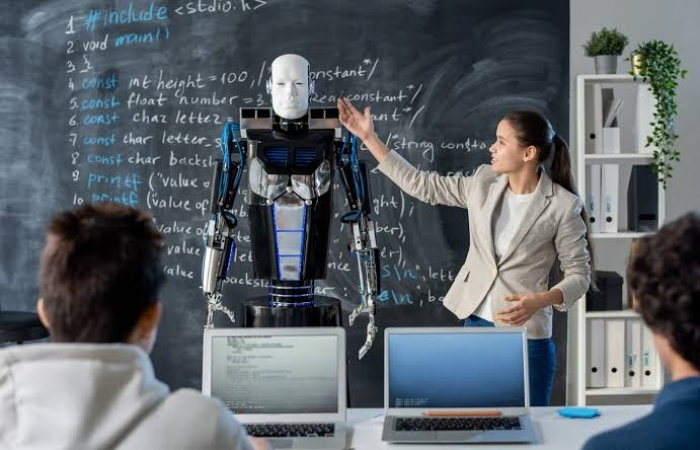AI will upend much of how we function in the workplace — at least according to new LinkedIn data.
"By 2030, 70% of skills used in most jobs will change," says Andrew Seaman, LinkedIn news editor at large for jobs and career development. LinkedIn determined which skills are used in most jobs by combining the skills companies are currently listing in job descriptions and skills individuals are listing in their profiles. They then made their calculations considering historical shifts in skills and projections around AI-replicable skills.
Seaman doesn't think these skills will be replaced altogether. Instead, they'll evolve. And other experts agree. "As technology continues to change the way we work, everyone must be aware as to what is evolving to keep their skills relevant and marketable," says Stacie Haller, chief career advisor at Resume Builder.
Here's what jobseekers should keep in mind.
'You may not need to do data entry anymore'
In the near future, employers will use AI "to enhance" their workers' abilities, says Seaman.
"You may not need to do data entry anymore," says Seaman as an example. "But you may need to do data management." Similarly, prompt engineeringmight not be necessary down the line. "It might be management of AI prompts and [large language models]" instead, he says. The menial tasks could be done by AI and the oversight and organization of those tasks could be taken on by people.
Not all jobs will be similarly affected. Manual labor or live performance, for example, likely won't be impacted as heavily. But in jobs like software engineer, web designer and cashier, AI will take the tasks people have been doing and make people more productive by enabling them to complete more tasks throughout the workday.
Down the line, "maybe one person can do the job of several," says Seaman.
'People need to get used to change at this point'
As tasks evolve with tech, there are several things you can do to make sure you're keeping up.
Read skills in demand lists on sites like LinkedIn, Upwork and Indeed to see what employers are looking for. If there are skills that seem relevant or interesting, "start adding them to your routine of learning" by taking different tutorials or even a class, says Seaman. If there's someone in your life who has that skill, you can also see if they're willing to teach you.
The bottom line is "people need to get used to change at this point," he says. "That's how they can stay competitive in the workforce going forward."
CNBC
